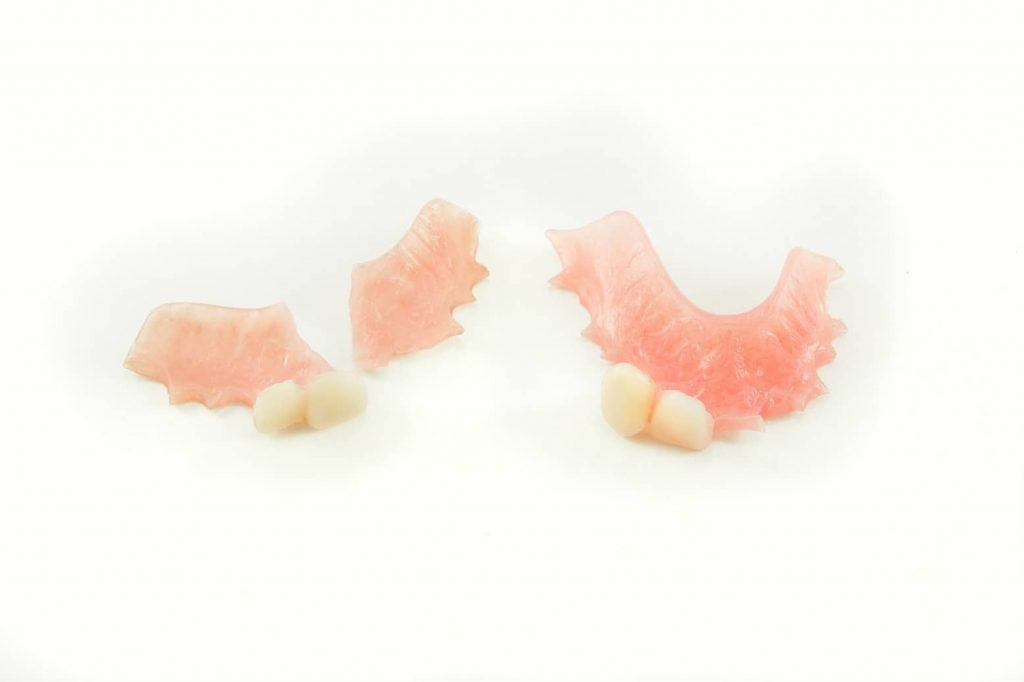Denture Repair
Despite the fact that you may work hard to take excellent care of your dentures, there are many different reasons for why your dentures may need repair. They may chip or break when dropped, they may fracture due to poor fit, or they may simply erode and crack over time. Of course, there are things you can do to try and prevent your dentures from becoming damaged and there are things you can do to help increase their longevity, but sooner or later all dentures will need to be repaired.

Common Denture Repairs
According to Hawler Medical University, the most common cause of denture fractures is poor fit. Dentures serve as replacement teeth, not only as regards appearance but also as regards function. This means that they are subjected to incredible pressure and biting forces as you bite and chew your food. If your dentures do not fit properly and especially if the upper and lower sets are not evenly aligned, you may end up putting too much force on one particular area, and this can lead to micro-fractures. Over time, these micro-fractures can turn into one large break or crack. The uneven biting force distribution that leads to micro-fractures can also be caused by worn artificial teeth on the dentures, which is why your dentist will want to examine your dentures every so often to verify their condition.
Another cause of denture fractures is due to the impact created when the dentures are dropped. Impact fractures can occur anywhere on dentures, including on the artificial teeth or even on the artificial gumline. Impact damage can also extend to the metal clasps of a partial denture, in which cause it should not be placed back in the mouth.
In addition to damages that necessitate repairs, dentures often need to be adjusted in order to maintain a proper fit in the mouth. When gums and bone are no longer supporting teeth, they tend to change and shrink over time. Obviously these changes can cause dentures to fit incorrectly and loosely unless they are reset. Left unresolved, your dentures can suffer so much uneven biting force and so many micro-fractures that they become significantly damaged and require complete replacement. However, if addressed early enough in the process, your loose dentures can be relined or based–usually right in your dentist’s office–in order to fit properly and comfortably in your mouth. In some cases, the needed repairs are more extensive and your dentures must be sent to a dental laboratory. Where this is the case, your dentist may provide you with temporary dentures to use in the interim.
Protecting Your Dentures and Your Oral Health
While there is no way to protect your dentures against ever needing any sort of repair, there are things you can do to help minimize the need for repairs, and eliminate the need for more extensive repairs. When you are handling your dentures, you should always be prepared in case they slip or you drop them. Place a towel under your dentures, even when cleaning them, in order to cushion them should they fall. Inspect them daily to see if there is any noticeable damage or wearing, and notify your dentist as soon as possible if you notice anything wrong with your dentures. Follow your dentist’s instructions when cleaning and storing your dentures, and avoid abrasive toothpastes that can scratch your dentures.
Damaged or poorly fitting dentures are not only uncomfortable, they can cause harm to the gums and bone in your oral cavity. Fortunately, dentures are composed mainly of acrylic resin, which is not only durable, comfortable and aesthetically pleasing but also repairable. Your dentist can even add more acrylic resin where need in order to reinforce the strength and integrity of your dentures. However, it is important to mitigate denture damage by having your dentures inspected regularly and repaired as soon as possible after damage occurs. For more information about denture repairs, contact Dr. Nurminsky today.

